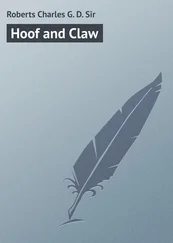Julian reassured him. “Yeah,” he said, “it’s me. I’m here.”
“Can you hear me?”
“I can hear you.”
“Listen, she’s out in my yard right now, out behind the shed with a, I don’t know, some kind of wolf it looks like, and that Afghan nobody seems to know who’s the owner of—”
“Who?” he said, but even as he said it he knew. “Who’re you talking about?”
“The dog woman.” There was a pause, and Julian could hear him breathing into the mouthpiece as if he were deep underwater. “She seems to be — I think she’s killing something out there.”
THE WOLF CHILDREN OF MAYURBHANJ
IT WAS HIGH SUMMER, just before the rains set in, and the bush had shriveled back under the sun till you could see up the skirts of the sal trees, and all that had been hidden was revealed. People began to talk of a disturbing presence in the jungle outside of the tiny village of Godamuri in Mayurbhanj district, of a bhut , or spirit, sent to punish them for their refusal to honor the authority of the maharaja. This thing had been twice seen in the company of a wolf, a vague pale slash of movement in the incrassating twilight, and it was no wolf itself, of that the eyewitnesses were certain. Then came the rumor that there were two of them, quick, nasty, bloodless things of the night, and that their eyes flamed with an infernal heat that incinerated anyone who looked into them, and panic gripped the countryside. Mothers kept their children close, fires burned in the night. Then, finally, came the news that these things were concrete and actual and no mere figments of the imagination: their den — the demons’ den itself — had been found in an abandoned termitarium in the dense jungle seven miles south of the village.
The rumors reached the Reverend J. A. L. Singh, of the Anglican mission and orphanage at Midnapore, and in September, after the monsoon clouds had peeled back from the skies and the rivers had receded, he made the long journey to Godamuri by bullock cart. One of his converts, a Kora tribesman by the name of Chunarem, who was prominent in the area, led him to the site. There, the Reverend, an astute and observant man and an amateur hunter acquainted with the habits of beasts, saw evidence of canine occupation of the termite mound — droppings, bones, tunnels of ingress and egress — and instructed that a machan be built in an overspreading tree nearby. Armed with his dependable twenty-bore Westley Richards rifle, the Reverend sat breathlessly in the machan and concentrated his field glasses on the main entrance to the den. The Reverend Singh was not one to believe in ghosts, other than the Holy Spirit, perhaps, and he expected nothing more remarkable than an albino wolf or perhaps a sloth bear gone white with age or dietary deficiency.
Dusk filtered up from the forest floor. Shadows pooled in the undergrowth, and then an early moon rose up pregnant from the horizon to soften them. Langurs whooped in the near distance, cicadas buzzed, a hundred species of beetles, moths and biting insects flapped round the Reverend’s ears, but he held rigid and silent, his binoculars fixed on the entrance to the mound. And then suddenly a shape emerged, the triangular head of a wolf, followed by a smaller canine head and then something else altogether, with a neatly rounded cranium and foreshortened face. The wolf — the dam — stretched herself and slunk off into the undergrowth, followed by a pair of wolf cubs and the two other creatures, which were too long-legged and rangy to be canids; that was clear at a glance. Monkeys, the Reverend thought at first, or apes of some sort. But then, even though they were moving swiftly on all fours, the Reverend could see, to his amazement, that these weren’t monkeys at all, or wolves or ghosts either.
DENNING
SHE NO LONGER BOTHERED with a notepad or the pocket tape recorder she’d once used to document the telling yip or strident howl. These were the accoutrements of civilization, and civilization got in the way of the kind of freedom she required if she was ever going to break loose of the constraints that had shackled field biologists from the beginning. Even her clothes seemed to get in the way, but she was sensible enough of the laws of the community to understand that they were necessary, at least for now. Still, she made a point of wearing the same things continuously for weeks on end — sans underwear or socks — in the expectation that her scent would invest them, and the scent of the pack too. How could she hope to gain their confidence if she smelled like the prize inside a box of detergent?
One afternoon toward the end of March, as she lay stretched out beneath a weak pale disc of a sun, trying to ignore the cold breeze and concentrate on the doings of the pack — they were excavating a den in the vacant quadrangle of former dairy pasture that was soon to become the J and K blocks of the ever-expanding development — she heard a car slow on the street a hundred yards distant and lifted her head lazily, as the dogs did, to investigate. It had been a quiet morning and a quieter afternoon, A.1. and Snout, as the alpha couple, looking on placidly as Decidedly, Barely and Factitious alternated the digging and a bulldog from B Street she hadn’t yet named lay drooling in the dark wet earth that flew from the lip of the burrow. Snout had been chasing cars off and on all morning — to the dogs, automobiles were animate and ungovernable, big unruly ungulates that needed to be curtailed — and she guessed that the fortyish man climbing out of the sedan and working his tentative way across the lot had come to complain, because that was all her neighbors ever did: complain.
And that was a shame. She really didn’t feel like getting into all that right now — explaining herself, defending the dogs, justifying, forever justifying — because for once she’d gotten into the rhythm of dogdom, found her way to the sacred place where to lie flat in the sun and breathe in the scents of fresh earth, dung, sprouting grass, was enough of an accomplishment for an entire day. Children were in school, adults at work. Peace reigned over the neighborhood. For the dogs — and for her too — this was bliss. Hominids had to keep busy, make a buck, put two sticks together, order and structure and complain , but canids could know contentment — and so could she if she could only penetrate deep enough.
Two shoes had arrived now. Loafers, buffed to brilliance and decorated with matching tassels of stripped hide. They’d come to rest on a trampled mound of fresh earth no more than twenty-four inches from her nose. She tried to ignore them, but there was a bright smear of mud or excrement gleaming on the toe of the left one; it was excrement, dog — the merest sniff told her that — and she was intrigued despite herself, though she refused to lift her eyes. And then a man’s voice was speaking from somewhere high above the shoes, so high up and resonant with authority it might have been the voice of the alpha dog of all alpha dogs — God Himself.
The tone of the voice, but not the sense of it, appealed to the dogs, and the bulldog, who was present and accounted for because Snout was in heat, hence the den, ambled over to gaze up at the trousered legs in lovesick awe. “You know,” the voice was saying, “you’ve really got the neighborhood in an uproar, and I’m sure you have your reasons, and I know these dogs aren’t yours—” The voice faltered. “But Ben Ober — you know Ben Ober? Over on C Street? — well, he’s claiming you’re killing rabbits or something. Or you were. Last Saturday. Out on his lawn?” Another pause. “Remember, it was raining?”
A month back — two weeks ago, even — she would have felt obligated to explain herself, would have soothed and mollified and dredged up a battery of behavioral terms — proximate causation, copulation solicitation, naturalistic fallacy — to cow him, but today, under the pale sun, in the company of the pack, she just couldn’t seem to muster the energy. She might have grunted — or maybe that was only the sound of her stomach rumbling. She couldn’t remember when she’d eaten last.
Читать дальше












